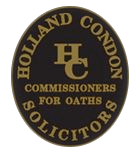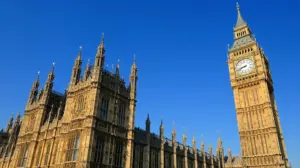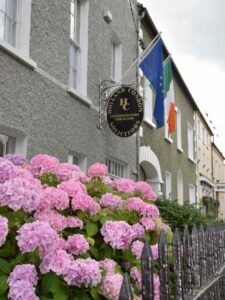The relevant Irish legislation relating to the serving of alcohol in licensed premises, the buying of alcoholic drinks in off-licences and drinking alcohol in public places is the Intoxicating Liquor Act 2008, Intoxicating Liquor Act 2003, Intoxicating Liquor Act 2000, the Licensing Act, 1872 and the Criminal Justice (Public Order) Act 1994.
Rules
Intoxicating Liquor Acts
Under the Intoxicating Liquor Acts, it is an offence to sell alcohol to anyone under the age of 18. Anyone found guilty of doing so is liable on summary conviction in a District Court to a class C fine.
It is an offence to buy alcohol for people under the age of 18. It is also an offence to give alcohol to anyone under the age of 18 unless in a domestic home and they have parental consent. If found guilty of any of these offences, you could be liable on summary conviction in a District Court to a class C fine.
Young people under the age of 18 are not allowed in licensed premises during extended hours (except in certain circumstances). It is the responsibility of the licence holder to make sure this does not happen.
If you are under 18, you cannot legally buy alcohol. Also you cannot drink it unless you are in a private residence and have permission from your parents. It is also an offence to pretend that you are over 18 in order to buy or drink alcohol. If you are found guilty of these offences, you are liable to a class E fine on summary conviction in a District Court.
Conduct in licenced premises
Patrons of licenced bars and premises in Ireland are expected to behave at all times with due respect for others. It is an offence under the 2003 Act to supply alcohol to a drunken person and to admit a drunken person to a bar. (A ‘drunken person’ is someone intoxicated to such a degree that they may endanger themselves or other people). Any licence holder that allows this to occur on their premises is liable on summary conviction to a class B fine for a first offence and a class A fine for any subsequent offence.
It is also an offence to engage in disorderly conduct on a licenced premises in Ireland. This means that you cannot behave in any way that constitutes a risk to the health, safety or welfare of anyone else on the premises. It also means that you cannot behave in a violent, threatening, abusive, insulting or quarrelsome manner. If you are requested to leave a licenced premises by the licence holder or a member of the Gardai, you must do so. Failure to leave when requested can mean you are liable for a class E fine. You may also be arrested by the Gardai.
Off-licences
Off-licence sales of alcohol is only permitted between the hours of 10.30 am and 10.00 pm on weekdays and 12.30 pm to 10.00 pm on Sundays.
It is illegal for anyone under the age of 18 to be in an off-licence, unless he or she is with a parent or guardian and all off-licences must display a sign to this effect. The sign must be in a prominent place at all times and failure to have such a sign on display can result in a fine. If an off-licence owner is found guilty of allowing under people under 18 onto his or her premises, he or she can be fined. People under 18 can themselves be liable for a class E fine if they are found in an off-licence without a parent or guardian.
Temporary closure orders
Some offences under the Intoxicating Liquor Act, 2003 (the sale of alcohol to people under 18, allowing people under 18 in licensed premises during extended hours and allowing people under 18 to be in an off-licence unaccompanied) can result in the imposition of a temporary closure order. This order is imposed by the District Court in addition to any fine that may be payable by the licence holder. The premises must be closed for a period not less than 2 days and not exceeding 7 days for a first offence, or of not less than 7 days and not more than 30 days for a second or any subsequent such offence. Any premises closed due to a temporary closure order must display a sign outside giving details of the length of the closure and stating that the closure is in compliance with a court order. In the event of persistent offenders, a court can ultimately demand the forfeiture of a licence.
Children
Children (anyone under the age of 18) are only allowed in licensed premises if they are with a parent or guardian, but this provision carries certain restrictions. For example if accompanied by a parent/guardian, the child may remain on the premises between the hours of 10:30am – 9pm (10pm May to September) (unless the licence holder feels this is injurious to the child’s health, safety and welfare). Children aged between 15-17 years may remain on the premises after 9pm where they are attending a private function at which a substantial meal is served. All licensed premises must display a sign to this effect in a prominent place at all time and failure to do so can result in a fine.
This law is regarded by many as going too far e.g. where children attend family functions
If the licence holder is found guilty of allowing unsupervised children in his or her premises, a fine can be imposed on summary conviction in a District Court. Parents and guardians can also be guilty of an offence under the Act if their children are found to be in licensed premises without supervision. If the parent or guardian cannot prove that the child was there without his or her knowledge or permission, he or she can be liable for a class E fine on summary conviction.
Selling alcohol at reduced prices ‘Happy Hour’
Since August 2003 it is illegal in Ireland to sell alcohol at reduced prices for a limited period during any day. (In other words, ‘happy hour’ is now prohibited).
Drinking in public
Under the Criminal Justice (Public Order) Act 1994, it is an offence for you to be so drunk in a public place that you could reasonably be presumed to be a danger to yourself or to anyone around you. If found guilty of this offence, you could be liable to a class E fine and a member of the Garda Siochana can confiscate any alcohol you may be carrying.
It is illegal for a licence holder to sell alcohol in a closed container (i.e., can or bottle) for consumption off the premises in a place 100 metres from the premises. If you purchase alcohol in this way, you could be liable for a class E fine.
While there is no national legislation prohibiting drinking in public, each local authority area is entitled to pass bye-laws prohibiting the consumption of alcohol in a public place. Contact your local authority to find out about these bye-laws in your area.
Under the Intoxicating Liquor Act 2008 the Gardaí have the power to seize alcohol in the possession of a child under 18 years of age where the Gardaí have reasonable cause to believe that the alcohol will be consumed by a child under 18 years in a public place.
Driving under the influence of alcohol
Under the Road Traffic Act 2010, it is illegal to drive or be in charge of a vehicle if you are under the influence of alcohol. The current legal limit is .50mgs of alcohol per 100mgs of blood in the case of experienced drivers, and .20mgs of alcohol per 100mgs of blood in the case of new and professional drivers. If you are over this limit, you are liable on summary conviction to a class A fine or to imprisonment for a term not exceeding 6 months. If the court decides, you could be liable to both. Anyone found driving while over the legal limit may be disqualified from driving. The period of disqualification will usually depend on the level of alcohol consumed. Read more about driving offences in Ireland here.
National Age Card
The Gardai (Irish police force) operate the National Age Card scheme. These Cards are proof that the cardholder is 18 or over, they are not identity cards. The Card shows the name of the holder, their date of birth, a photograph and a security feature, such as a hologram. You can order your Card online at agecard.ie. It costs €10.
Anyone found guilty of forging or altering the details on an official Age Card can be liable on summary conviction to a class C fine or to a prison term not exceeding 12 months or to both. Licence holders that allow people between 18-21 years on their premises without appropriate identification can face a fine. (Appropriate identification includes a National Age Card, a passport, a driving licence, or a identitiy card issued by an EU member state).




